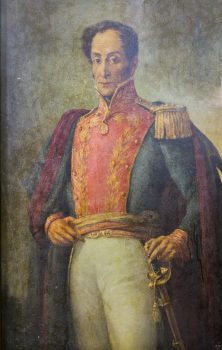Beginner Spanish Listening Practice – Lesson 19 Physical descriptions (Part 2)
In this Spanish lesson we will practice more about how to describe physical appearances in Spanish using el verbo ser (to be) and el verbo tener (to have). As usual, first we will review some relevant grammar and vocabulary and then see if you can follow a short listening. This lesson continues on from the previous lesson in this course which also looked at describing the family in Spanish using tener.

This lesson is part of a Spanish course that practices the grammar and vocabulary first introduced in my beginner Spanish course posted here on the Transparent Language blog. Let’s test your listening comprehension and see if you can understand a short audio in Spanish. The transcript to the audio will be given at the end of the post but please try not to look at it until you have tried playing and understanding the audio a few times.
Use the following link to watch the corresponding video lesson of the original course:
Beginner Spanish Lesson 11 Physical descriptions
Please familiarise yourself with the following words and phrases before listening to the audio below:
Como yo: like me
También: also
Tampoco: neither
Now, play the audio below to listen to a conversation in Spanish between two people describing their family. Can you understand what they are saying? Play the audio a few times before you look at the transcript. Don’t worry if you don’t understand every single thing the two people are saying. Try to catch whichever words you can and then try to piece things together to work out what is being said.
(Play the audio a few times before you scroll down and look at the transcript)
Transcript:
Pilar: Andrew ¿Cómo es tu hijo?
Andrew: Mi hijo tiene el pelo moreno y los ojos marrones, como yo. ¿Tú tienes hijos?
Pilar: Sí, tengo dos.
Andrew: ¿Y cómo son?
Pilar: Mi hijo Miguel es castaño con ojos verdes y mi hija Ana es como yo, morena con ojos marrones.
Andrew: Ah sí. Miguel es como tu hermano Juan, castaño con ojos verdes.
Pilar: Sí y es muy alto también, como Juan.
Andrew: Ah sí. Mi hijo Lucas no es muy alto. Pero yo y mi mujer no somos altos tampoco.
Pilar: Sí, es verdad. Yo y mi marido tampoco somos altos, pero mi padre es muy alto.
Andrew: ¿Sí? Mi padre es bajo, como yo.
Pilar: ¿Y tu madre?
Andrew: Mi madre también es baja.
So, how did you get on? How much did you understand of the listening? Please let me know in the comments section below…
Don’t worry if you didn’t understand that much, keep reviewing the vocabulary and phrases and you will soon be up to speed and ready for the next lesson in this course. See you next time!
By the way… want more free language learning resources, advice, and news from Transparent Language? Sign up for our newsletter!
About the Author:Laura
Laura. I qualified as a Spanish Language Teacher in 2004. I have taught Spanish in England and Spain and now really enjoy teaching the Spanish Language via my website The Spanish Blog to students from all around the world. I love my job and the intricacies of the Spanish Language. My main personal interests are music, reading and cooking. I studied music for twelve years in Bilbao and I play the piano. I also enjoy singing and I try my best to sing more in English now. I hope very much that you enjoy my posts and welcome any comments.
Posteado en Spanish Articles (Facebook)



